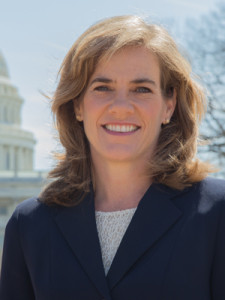By General Counsel K. Hollyn Hollman
 Depending on where you live, one of your primary religious liberty concerns may be fighting against public funding of private religious schools. Approximately a dozen states and the District of Columbia now have some kind of school voucher program, often referred to as “scholarship” or “school choice” programs, which use public dollars to pay private school tuition. These programs vary in size, scope and threat to religious liberty. While they are often pursued in hopes that competition among schools will lead to increased student achievement and decreased education costs, data supporting those outcomes is scarce. Yet voucher legislation continues to undercut the principle that public funds should be used for public purposes and not for religious indoctrination.
Depending on where you live, one of your primary religious liberty concerns may be fighting against public funding of private religious schools. Approximately a dozen states and the District of Columbia now have some kind of school voucher program, often referred to as “scholarship” or “school choice” programs, which use public dollars to pay private school tuition. These programs vary in size, scope and threat to religious liberty. While they are often pursued in hopes that competition among schools will lead to increased student achievement and decreased education costs, data supporting those outcomes is scarce. Yet voucher legislation continues to undercut the principle that public funds should be used for public purposes and not for religious indoctrination.
In our efforts to protect that principle, the BJC recently joined in a lawsuit challenging a voucher program in Colorado as a violation of that state constitution’s prohibition against government funding of religious schools, which is a key component of religious liberty protection. In a friend-of-the-court brief filed on behalf of the BJC and other religious and civil liberties organizations, we argue that the “no aid” provision, found in Article IX, Section 7 of the Colorado Constitution, is one of the strongest in the country, protecting against the diversion of public money for private, religious purposes, and that the voucher program should be held unconstitutional.
The program at issue (known as the “Choice Scholarship Program”) operates in Douglas County, providing tuition vouchers to 500 students that can be spent at private schools. More than 75 percent of the private schools participating in the program are religious schools, which can then use those taxpayer dollars for a variety of religious activities, including religious instruction.
On behalf of a group of parents, clergy and taxpayers, the voucher program was challenged by Americans United for Separation of Church and State, the American Civil Liberties Union and the ACLU of Colorado. The plaintiffs and the signatories to the amicus brief agree that religious education of children is a matter best left to families and their houses of worship, and the use of tax dollars to fund religious institutions and religious education impedes rather than advances the cause of religious freedom. A district court halted the program, finding it violated Colorado’s “no aid” clause as well as other provisions of the Colorado Constitution. The state appeals court reversed that decision in February 2013 and upheld the program.
The BJC’s brief in the Colorado Supreme Court recounts theological and political opposition to the state funding of religion and presents the historical background and current implementation of the “no aid” clause promoting religious liberty in Colorado. The brief states that the provision is an “expression of both the philosophical and political traditions of freedom of conscience” and a way religious freedom is currently protected. “In drafting and adopting this strict No-Aid Clause, the delegates to Colorado’s constitutional convention expressly sought to promote religious freedom and protect the public schools and the public-school fund by imposing an absolute prohibition against the use of public dollars for religious instruction,” according to the brief.
“Grounded in the understanding that freedom of conscience is an essential component of faith and the experience of a long, sad history of religious oppression, the principle of separation recognizes that governmental support for and funding of religion corrodes true belief, makes religious denominations and houses of worship beholden to the state, and places subtle — or not so subtle — coercive pressure on individuals and groups to conform,” according to the brief.
The case, LaRue v. Colorado Board of Education, reflects a second stage in religious liberty litigation over vouchers. While the U.S. Supreme Court found that a school voucher program that involved a number of public and private school choices did not violate the First Amendment in Zelman v. Simmons-Harris (2002), this case — like other challenges in the courts — is based specifically on a state constitution’s “no aid” clause. Some 35 states have “no aid” provisions in their constitutions, which provide more protection against government establishment of religion than the U.S. Constitution. Colorado’s clause declares unequivocally that no government entity “shall ever make any appropriation, or pay from any public fund or moneys whatever” for any church or sectarian purpose or to help support or sustain any school controlled by a church or sectarian denomination.
The BJC has long opposed vouchers for the threat they pose to religious liberty. As the brief explains, programs like the one in this case encroach on that principle by interfering with free choice in matters of conscience and making religion dependent on government.
Click here to read the brief the BJC joined in this case.
From the June 2014 Report from the Capital. Click here to read the next article.





